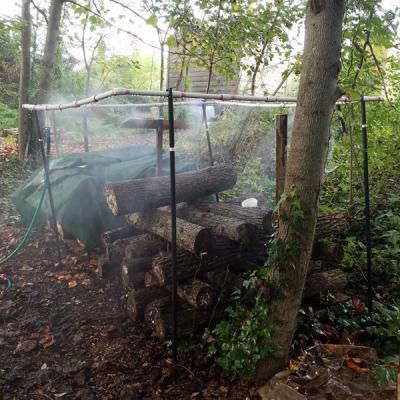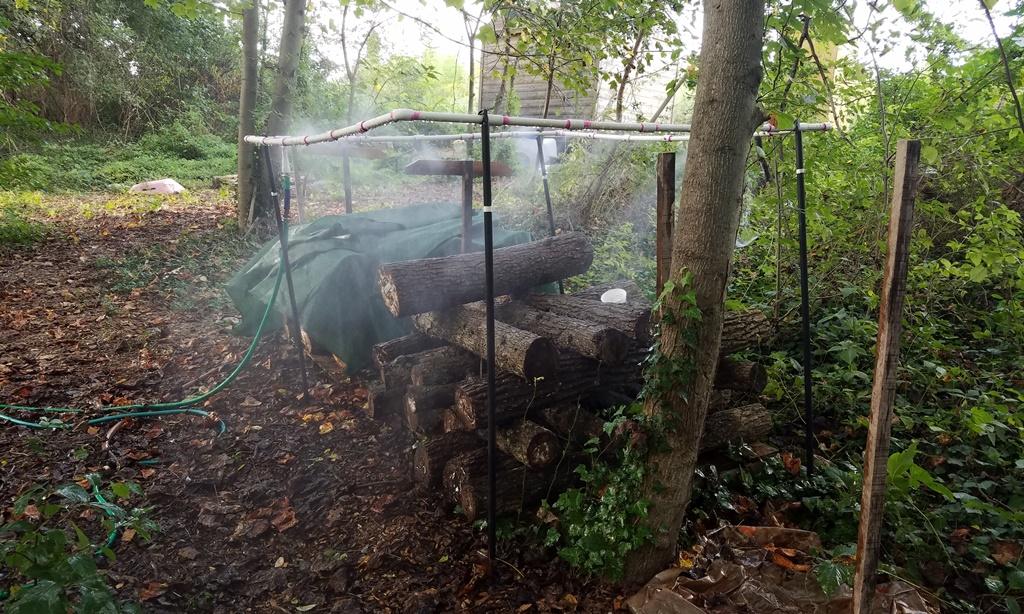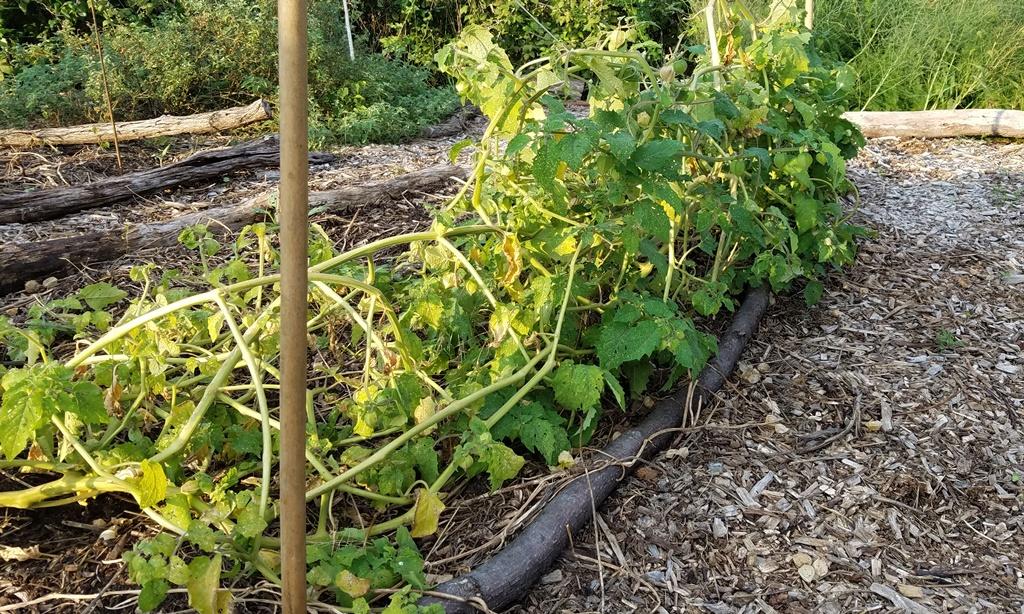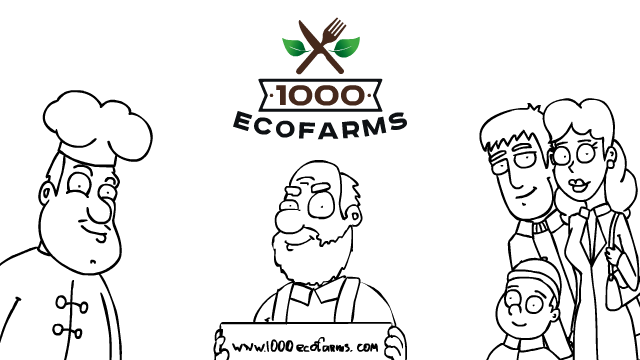Forest farming refers to the practice of relying heavily on native or planted woodlands in order to cultivate edible, medicinal, and specialty crops, as well as wood. Rather than foraging or wildcrafting, forest farming is the intentional cultivation of valuable crops, much like conventional agriculture. Unlike conventional agriculture, the method relies on modification of the forest canopy in order to produce desirable conditions for specific crops.
A wide variety of plants can be cultivated in a forest farm or forest garden setting: different kinds of mushrooms — such as shiitake or oyster, different fruits — like pears, persimmons, and apples, lots of different berries, some nuts — such as hazelnuts and black walnuts, and most of the usual vegetables as well as more unique perennials. Some specialty crops can be cultivated on forest farms as well, including ginseng, pacific yew, and other medicinal herbs.
As a type of agroforestry, forest farming is a land management technique that combines practices of forestry and small-scale farming to create a sustainable land-use system. Often this is achieved through the thinning of the canopy in order to optimize shade conditions for simultaneously growing lumber and cultivating specific crops in the understory.
The primary benefit of forest farming is taking advantage of the forests’ ability to sustainably produce more than just wood. By utilizing forest farming land management techniques, woodland owners are able to diversify their production and increase potential profits of their land. Along with increasing benefits for the landowner, responsible forest farming practices can improve the integrity of the forest and help maintain the health of the natural ecosystem.
A wide variety of plants can be cultivated in a forest farm or forest garden setting: different kinds of mushrooms — such as shiitake or oyster, different fruits — like pears, persimmons, and apples, lots of different berries, some nuts — such as hazelnuts and black walnuts, and most of the usual vegetables as well as more unique perennials. Some specialty crops can be cultivated on forest farms as well, including ginseng, pacific yew, and other medicinal herbs.
As a type of agroforestry, forest farming is a land management technique that combines practices of forestry and small-scale farming to create a sustainable land-use system. Often this is achieved through the thinning of the canopy in order to optimize shade conditions for simultaneously growing lumber and cultivating specific crops in the understory.
The primary benefit of forest farming is taking advantage of the forests’ ability to sustainably produce more than just wood. By utilizing forest farming land management techniques, woodland owners are able to diversify their production and increase potential profits of their land. Along with increasing benefits for the landowner, responsible forest farming practices can improve the integrity of the forest and help maintain the health of the natural ecosystem.
Ground cherries are just some of the crops that are successfully cultivated at forest farms in US Mid-Atlantic region.
Forest farming and other alternatives to conventional agriculture could be part of the solution to one of our most fundamental challenges as humans when it comes to the environment: maximizing our benefits from natural resources without causing environmental degradation.
Over at Forested, LLC, they believe strongly in the potential of forest farming. According to their website, their vision is “for forest garden ecosystems to sustainably supply a large portion of all food and forest products people need and use for healthy living”. The company does lectures and tours, hosts volunteers, and puts on classes for those interested in learning hands-on skills. Founder Lincoln Smith says, “We’re trying to push the envelope with as much ecosystem function and food production on the same piece of ground as we can.”
If you are located in Maryland, or near the greater Washington DC and Baltimore areas, you can see forest farming in action during a tour at Forested’s 10-acre forest garden, located in Bowie, MD. Touring a forest garden is an excellent way to witness the sustainability and potential of forest farming for yourself.
Over at Forested, LLC, they believe strongly in the potential of forest farming. According to their website, their vision is “for forest garden ecosystems to sustainably supply a large portion of all food and forest products people need and use for healthy living”. The company does lectures and tours, hosts volunteers, and puts on classes for those interested in learning hands-on skills. Founder Lincoln Smith says, “We’re trying to push the envelope with as much ecosystem function and food production on the same piece of ground as we can.”
If you are located in Maryland, or near the greater Washington DC and Baltimore areas, you can see forest farming in action during a tour at Forested’s 10-acre forest garden, located in Bowie, MD. Touring a forest garden is an excellent way to witness the sustainability and potential of forest farming for yourself.







